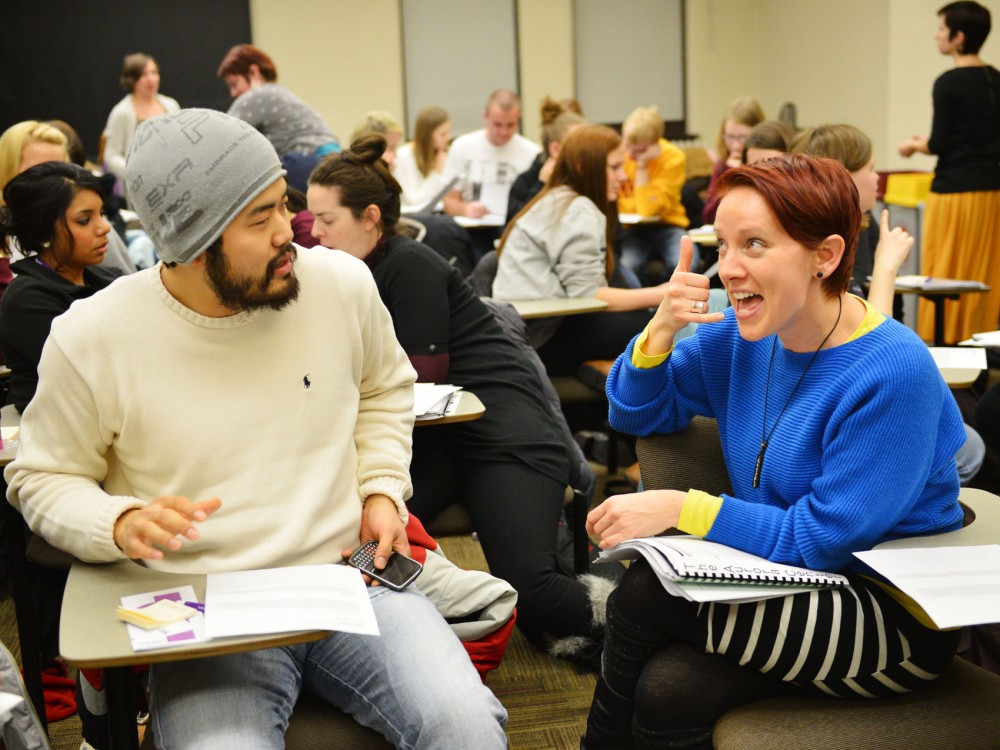Positivity filled the room where 45 new faces trained to be volunteers for the Aurora Center for Advocacy and Education last week, with the highest number of volunteers ever for the annual training process.
Each year, the Aurora Center holds a weeklong, 40-hour training session for new advocates and educators to learn to be violence-prevention educators and helpline and office advocates.
The Aurora Center, which served 465 new clients last school year, provides information and advocacy to members of the University community on sexual assault, relationship violence and stalking.
Throughout the week, volunteers learned how to help clients while working through various scenarios that could occur while volunteering.
“We use them to help volunteers get their feet wet,” said English junior Jennifer Snider, who has worked at the Aurora Center since her freshman year.
This is the second year men were able to go through the training process and the first year male advocates are able to go to the hospital with clients, though they are currently not allowed to go in the patient’s room.
Clients have a choice of talking to either a male or female advocate on the helpline, said Aurora Center director Katie Eichele. So far, clients’ responses to male advocates have been “overwhelmingly positive,” she said.
Mitchell Daas, a child psychology junior, said he thinks he will be a good listener for the helpline.
“I feel like guys bring something else to the field,” he said.
The new volunteers said they were nervous but mostly excited to complete training and have the chance to work with the University community.
“I just want to be there for that person,” sophomore Bronte Stewart said, “because no one should have to go through something like sexual assault alone.”
Eichele said the center has experienced a spike in University freshmen who have been sexually assaulted in high school and visited the center for help.
“It’s concerning for us,” she said.
Because of this increase, the Aurora Center focuses especially on risk-reduction strategies.
Volunteers also learned how to best help their clients from guest speakers ranging from the University police department to the gay, lesbian, bisexual, transgender ally organization OutFront Minnesota.
Volunteers also provide educational presentations on sexual assault, relationship violence and stalking to student groups, faculty, staff and community members, Prevention Program coordinator Traci Thomas-Card said.
“We know that the more education, the more outreach, the more awareness we raise,” she said, “the more survivors are accessing services, the more concerned people are calling with questions and the better the prevention efforts become.”


